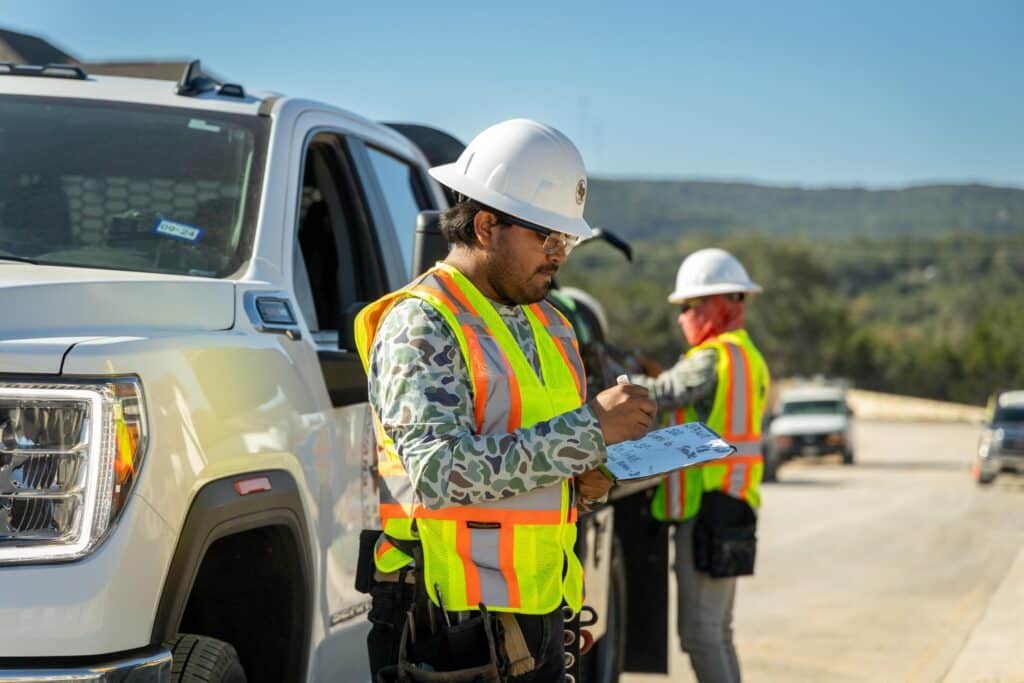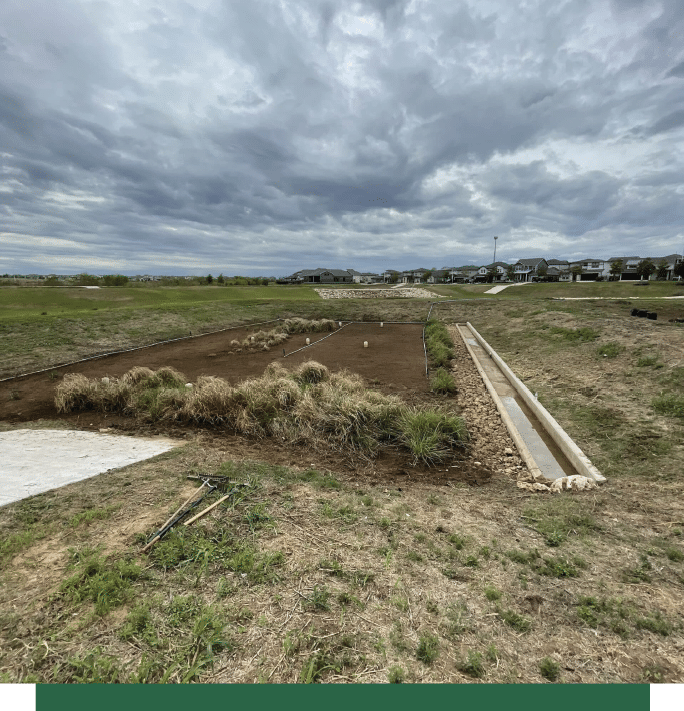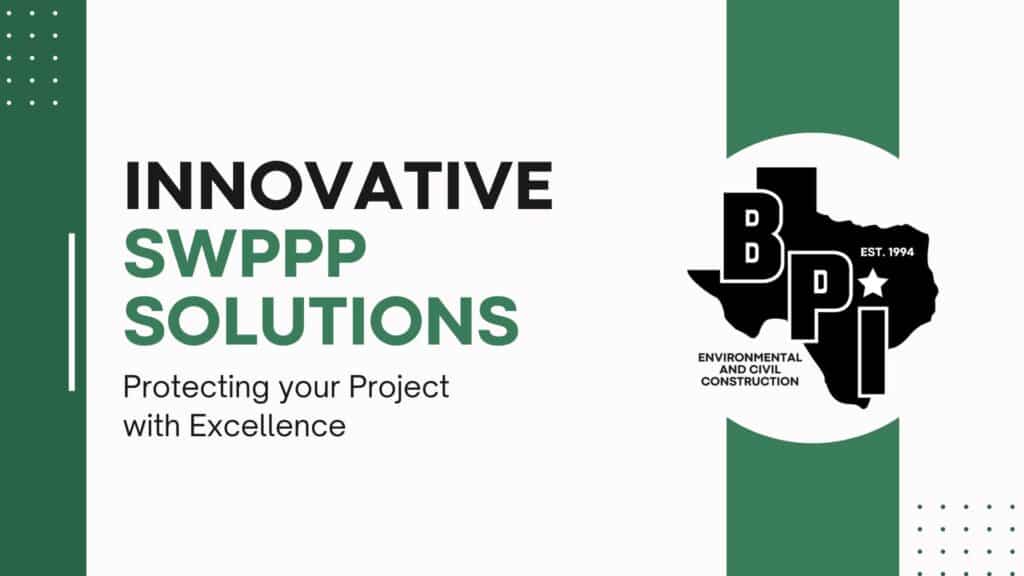Frequently Asked Questions
What is a Storm Water Pollution Prevention Plan (SWPPP)?
A SWPPP is a comprehensive plan that outlines specific measures and strategies to prevent or minimize storm water pollution on construction sites. It is a document required by the Environmental Protection Agency (EPA) to control construction site runoff and comply with the Clean Water Act.
Is SWPPP required in Texas?
Yes, SWPPP is required in Texas for any construction activity that disturbs one or more acres of land, or less than one acre but part of a larger common plan of development or sale. It is also required for sites that are located near or discharge into a waterbody designated by the Texas Commission on Environmental Quality (TCEQ).
Who needs to have a SWPPP in Texas?
Anyone conducting a construction activity that meets the above criteria is required to have a SWPPP in Texas. This includes developers, contractors, and builders.
Why is a SWPPP important in Texas?
A SWPPP is important in Texas because it helps to protect water resources and prevent pollution. Construction site runoff can contain pollutants such as sediment, chemicals, and debris, which can harm aquatic life and affect water quality. SWPPP helps to prevent these pollutants from entering waterways and comply with state and federal regulations.
What should be included in a SWPPP in Texas?
A SWPPP in Texas should include a site description, potential sources of pollutants, erosion and sediment control practices, storm water management practices, and a schedule for inspection and maintenance. It should also include a map of the site, a description of the construction activities, and documentation of any changes or updates to the plan.
It is recommended to work with an experienced environmental consulting firm, such as BPI Partners Inc, to develop a customized SWPPP that addresses the specific needs and conditions of your construction site.

Key Takeaways:
- A SWPPP is a necessary plan for construction activities in Texas to prevent pollution in waterways and comply with federal and state mandates.
- Professional SWPPP providers in Texas offer expertise in navigating diverse ecosystems and extreme weather events, ensuring compliance and reducing potential penalties.
- Choosing a professional SWPPP provider in Texas can lead to long-term cost savings, promote environmental responsibility, and ensure compliance assurance for development projects.
Introduction to Storm Water Pollution Prevention Plan (SWPPP)
Storm Water Pollution Prevention Plan (SWPPP) is a crucial framework designed to mitigate the impact of construction activities on stormwater quality and the environment.
SWPPP plays a vital role in ensuring that construction sites implement necessary measures to prevent harmful pollutants from contaminating stormwater runoff and ultimately entering water bodies.
The components of a SWPPP typically include detailed site maps, erosion control plans, sediment control measures, pollution prevention practices, and regular inspections to monitor and manage stormwater during construction.
By proactively addressing stormwater management, SWPPP helps to protect aquatic ecosystems, prevent soil erosion, and safeguard water quality for surrounding communities.
Understanding the Regulatory Necessity
Understanding the regulatory necessity of Storm Water Pollution Prevention Plan (SWPPP) involves compliance with stringent guidelines set forth by agencies like the Texas Commission on Environmental Quality (TCEQ).
SWPPP implementation is crucial for businesses and construction sites to mitigate potential pollutants entering water bodies. TCEQ regulations outline specific requirements for SWPPP development, including site assessments, control measures, monitoring, and reporting.
Entities falling under TCEQ jurisdiction must adhere to these regulations to prevent contamination of stormwater runoff. Non-compliance can result in fines, penalties, or legal actions, emphasizing the importance of maintaining an effective SWPPP.
Compliance with Federal and State Mandates
Ensuring compliance with both federal regulations like the Construction General Permit (CGP) and state mandates, such as those outlined by the Texas Commission on Environmental Quality (TCEQ), is fundamental in implementing an effective Storm Water Pollution Prevention Plan (SWPPP).
Compliance with these regulatory bodies is essential as it not only ensures the protection of the environment but also aids in avoiding costly penalties and legal implications. The CGP sets forth specific requirements that construction activities must adhere to, such as erosion and sediment control measures and site inspections.
Similarly, the TCEQ regulations encompass a wide range of parameters including proper stormwater management, spill prevention, and pollution control measures, all geared towards safeguarding natural resources.
Importance for Construction Activities
The importance of Storm Water Pollution Prevention Plan (SWPPP) for construction activities lies in its role in promoting environmental protection and ensuring regulatory compliance throughout the project lifecycle.
SWPPP plays a crucial part in managing potential water pollution risks associated with construction projects. By implementing effective SWPPPs, construction sites can prevent contaminants from entering water bodies, safeguarding aquatic ecosystems and water quality. This proactive approach not only maintains environmental standards but also minimizes the negative impacts of stormwater runoff, such as sedimentation and contamination.
Significance of SWPPP in Texas
The significance of Storm Water Pollution Prevention Plan (SWPPP) in Texas is underscored by the state’s robust regulations and stringent requirements governing environmental protection during construction projects.
Texas, being prone to extreme weather conditions, often experiences heavy rainstorms and flash floods, making it crucial to have effective measures in place to prevent pollution of stormwater runoff.
SWPPP plays a pivotal role in safeguarding water quality by outlining strategies to control erosion, manage runoff, and minimize sediment transport on construction sites.
The Texas Commission on Environmental Quality (TCEQ) mandates the development and implementation of SWPPP as a legal requirement, ensuring compliance with state-specific regulations and guidelines.
Protecting Texas Waterways
Protecting Texas waterways through Storm Water Pollution Prevention Plan (SWPPP) initiatives is vital for safeguarding the state’s natural resources and ecosystems from the impacts of stormwater runoff.
SWPPP plays a crucial role in managing and mitigating pollutants that can be carried by stormwater into rivers, lakes, and streams. By implementing effective SWPPP measures, industries and construction sites can prevent harmful chemicals, sediments, and debris from contaminating the environment. These plans outline strategies for erosion control, sedimentation management, and pollution prevention, ensuring compliance with environmental regulations and protecting the water quality of Texas. SWPPP helps in reducing the risk of flooding and erosion, safeguarding aquatic habitats, and promoting sustainable development practices.
Preventing Pollution in the Environment
Preventing pollution in the environment forms a core objective of Storm Water Pollution Prevention Plan (SWPPP) implementation, aligning with environmental protection measures and compliance standards set forth by regulatory bodies.
By effectively implementing SWPPP initiatives, industries, construction sites, municipalities, and other entities can actively reduce the risk of contaminants entering water bodies, such as rivers, lakes, and oceans. This preventive approach involves detailed assessments, planning, and control measures to mitigate potential pollution sources.
Compliance with SWPPP guidelines ensures that effective erosion and sediment controls, pollution prevention practices, and monitoring protocols are in place to safeguard water quality and ecosystems. Through these efforts, organizations not only fulfill legal obligations but also demonstrate their commitment to sustainable practices and responsible environmental stewardship.
Ensuring Compliance and Avoiding Penalties
Ensuring compliance with the regulations stipulated by entities like the Texas Commission on Environmental Quality (TCEQ) is essential in avoiding penalties and upholding the integrity of Storm Water Pollution Prevention Plan (SWPPP) practices in Texas.
Failure to adhere to the guidelines set forth by the TCEQ could not only result in financial penalties but also tarnish the reputation of companies and organizations involved in managing stormwater.
Compliance is not just a legal obligation but also a responsible approach towards environmental stewardship to protect water bodies from contamination and pollution.
By staying abreast of the ever-evolving environmental regulations and ensuring rigorous adherence, businesses can mitigate risks and demonstrate a commitment to sustainable practices.
Expertise of SWPPP Providers in Texas
The expertise of Storm Water Pollution Prevention Plan (SWPPP) providers in Texas, such as BPI Partners Inc., showcases a deep understanding of Texan regulations and a commitment to delivering tailored erosion control solutions.
These providers are well-versed in the intricate details of Texan regulations related to stormwater management, ensuring that all SWPPP documents are compliant and effective in the local context. Through their specialized knowledge, they can assess the unique environmental challenges faced by different regions within Texas, from the coastal areas to the urban centers.
BPI Partners stands out for its innovative approach to erosion control, implementing cutting-edge technologies and sustainable practices to minimize environmental impact. Their expertise enables them to create comprehensive SWPPP solutions that address specific erosion control needs based on the local topography and soil conditions.
Local Knowledge and Expertise
The expertise of SWPPP providers like BPI Partners ensures comprehensive services tailored to meet the unique erosion control requirements of Texas construction projects.
Local knowledge plays a crucial role in understanding the specific terrain, weather patterns, and regulatory environment of a particular region, such as Texas. This insight allows companies like BPI Partners to design SWPPP that are not only compliant with local regulations but also effective in mitigating erosion risks.
With 30 years as Leaders in Environmental and Civil Construction, BPI Partners has developed trusted and innovative SWPPP techniques. BPI works closely with clients to analyze factors like soil type, slope, and project size to implement the most effective erosion control measures. Using cutting-edge technology and industry best practices, we ensure that every aspect of the SWPPP is meticulously crafted to prevent stormwater pollution and soil erosion.
Specialization in Texan Regulations
Specializing in Texan regulations, Storm Water Pollution Prevention Plan (SWPPP) providers ensure strict compliance with state standards, offering clients peace of mind regarding environmental protection and regulatory adherence.
SWPPP providers in Texas need to be well-versed in the intricate web of environmental laws and regulations set forth by the state. Their expertise lies in crafting tailored plans that not only meet compliance standards but also mitigate potential risks of water pollution. Through comprehensive assessments, they identify potential threats, design effective measures, and execute strategies that safeguard the surrounding ecosystem.
By collaborating with SWPPP providers, businesses can proactively address environmental concerns while meeting all regulatory obligations. These professionals play a crucial role in safeguarding water quality and promoting sustainable practices in industries across Texas.
Benefits of Choosing a Professional SWPPP Provider
Selecting a professional Storm Water Pollution Prevention Plan (SWPPP) provider offers numerous benefits, including enhanced compliance assurance, a commitment to environmental responsibility, and long-term cost savings for development projects in Texas.
When opting for a professional SWPPP provider, one important advantage is the meticulous compliance assurance they offer. These experts stay up-to-date with the ever-changing regulations and ensure that your project meets all requirements set by local, state, and federal authorities.
Professional providers implement sustainable practices that minimize the project’s impact on the environment, safeguarding water quality and ecosystems. A strong commitment to environmental responsibility sets BPI Partners apart.
Choosing a professional SWPPP provider can lead to significant cost savings in the long run. By preventing costly fines, delays, and rework due to non-compliance, they help optimize project budgets and streamline operations.
Ensuring Compliance Assurance
Professional Storm Water Pollution Prevention Plan (SWPPP) providers ensure compliance assurance with regulations mandated by entities like the Texas Commission on Environmental Quality (TCEQ), minimizing the risk of violations and penalties for construction activities.
These experts possess in-depth knowledge of regulatory frameworks and utilize this understanding to develop comprehensive SWPPPs tailored to specific project requirements. By staying updated on the latest TCEQ guidelines and industry best practices, they implement measures that not only meet but exceed compliance standards. Their meticulous approach includes regular monitoring, reporting, and site inspections to proactively identify and address any potential non-compliance issues, thereby ensuring a smooth and risk-free construction process.
Promoting Environmental Responsibility
Partnering with a professional Storm Water Pollution Prevention Plan (SWPPP) provider reflects a commitment to environmental responsibility, aligning with the principles outlined in regulations such as the Construction General Permit (CGP) to safeguard natural resources.
Professional SWPPP providers play a crucial role in ensuring that construction sites adhere to the strict environmental guidelines set forth by agencies like the Environmental Protection Agency (EPA) to minimize the impact of stormwater runoff on the environment.
By implementing comprehensive SWPPP strategies, these experts help construction projects remain in compliance with the CGP, addressing potential pollutants and runoff concerns, thus contributing to the preservation of water quality and ecosystem health.
Long-Term Cost Savings for Development Projects
Professional Storm Water Pollution Prevention Plan (SWPPP) providers offer the advantage of long-term cost savings for development projects in Texas by streamlining construction activities and ensuring efficient compliance with environmental regulations.
By strategically implementing SWPPP, these experts effectively manage runoff, erosion, and sediment control, minimizing potential liabilities and costly fines. Their detailed plans consider the unique geographical and environmental challenges in Texas, tailoring solutions that blend efficiency with sustainability. Through proactive monitoring and swift adaptations, they help prevent delays and unforeseen expenses, safeguarding the project timeline and budget. Ultimately, their comprehensive approach not only ensures regulatory adherence but also enhances the project’s environmental impact and reputation, paving the way for future success.
Conclusion and Recommendations for SWPPP Implementation
The implementation of Storm Water Pollution Prevention Plan (SWPPP) in Texas is vital for upholding compliance standards, promoting environmental stewardship, and ensuring sustainable development practices in construction projects across the state.
When construction projects adhere to SWPPP guidelines, they significantly reduce the risk of pollutants entering natural water bodies, thereby safeguarding the environment from contamination. The enforcement of SWPPP not only enhances the legal compliance of the projects but also fosters a culture of responsible construction practices that prioritize environmental protection. By integrating SWPPP into their operations, organizations in Texas contribute towards a greener and more sustainable future for generations to come.


